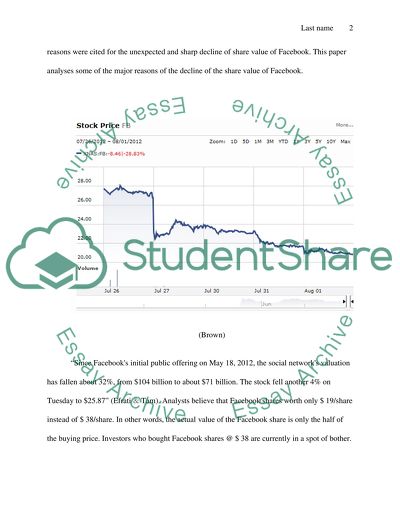Cite this document
(“Facebook's IPO Fallout Research Paper Example | Topics and Well Written Essays - 2500 words”, n.d.)
Facebook's IPO Fallout Research Paper Example | Topics and Well Written Essays - 2500 words. Retrieved from https://studentshare.org/finance-accounting/1465369-facebookyies-ipo-fallout
Facebook's IPO Fallout Research Paper Example | Topics and Well Written Essays - 2500 words. Retrieved from https://studentshare.org/finance-accounting/1465369-facebookyies-ipo-fallout
(Facebook'S IPO Fallout Research Paper Example | Topics and Well Written Essays - 2500 Words)
Facebook'S IPO Fallout Research Paper Example | Topics and Well Written Essays - 2500 Words. https://studentshare.org/finance-accounting/1465369-facebookyies-ipo-fallout.
Facebook'S IPO Fallout Research Paper Example | Topics and Well Written Essays - 2500 Words. https://studentshare.org/finance-accounting/1465369-facebookyies-ipo-fallout.
“Facebook'S IPO Fallout Research Paper Example | Topics and Well Written Essays - 2500 Words”, n.d. https://studentshare.org/finance-accounting/1465369-facebookyies-ipo-fallout.


